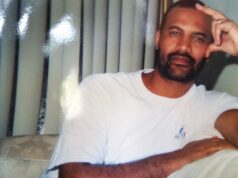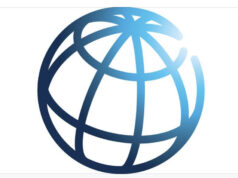As most of my friends and acquaintances know, I am not active participant to the Ethiopian politics that has accelerated to the speed of light in recent times; rather, a keen observer and consumer of the news, insights, and analyses around it, mostly based on content you produce on my newsfeed, and up on accessing your public profile out of curiosity on the content you produce. Inspired by certain exchanges I had and based on careful observation of developments in recent times, I wanted to share a few non-sensational but essential ideas using as much little words and yet as much plain language befitting social media as possible.
(1) We are at a particular stage in the history of Ethiopian politics, when an opportunity has risen to build appropriate systemic, systematic, institutional, and structural mechanisms for solving long-term, pervasive and multifaceted problems ailing the country – whether that takes a few weeks, a few months, or a few years from now, and irrespective of questions as to whether the faces of change that we now see are capable of accomplishing them
(2) The scope of the problems and their graveness is massive; no single individual, no single party, no single group can have the blueprint to solve them. Yet, they are not problems so grave that no other country in history has ever faced; there are solutions out there that can pragmatically and systematically be incorporated to address many of the crucial problems in the long term
(3) In solving these problems, we all have something to contribute at varying levels and in different forms; such contributions are best accomplished through insights developed in a systematic and well-considered fashion SOLELY to build a better future for that kid on the streets in Ethiopia (and not to satisfy individuals’ whims and fancies in all ways, shapes and forms); the solutions are bound to be varied in approaches, methods and substance; lets avoid a delusion that ours offers the magic pill.
To be a bit more specific in a language pertinent to the topic; your version of federalism is not the best and only one to solve those significant problems, nor is your version of alternative system of governance the best and only one to ensure the country’s unity; some problems will persist in some levels even after a massive fix in a certain brilliant fashion.
(4) There are distressing and worrying news of eviction, displacement and violence that have become so common in a historically unprecedented levels; these need the urgent attention of everyone and by all means, every effort must be made to use social media to attract attention and galvanize resources; their implications in the search for long-lasting solutions should properly be analyzed.
However, I urge politicians, analysts, activists and journalists to show a bit restraint in building alarmist and “heads on fire” narratives around them, touching on the building blocks of the Ethiopian nation-state (notably, the “Ethiopia turns Yugoslavia”, and the “Empire-builders are coming” narratives that are favorites in some quarters). Often times, the depth of insight and the rigor of analysis behind these narratives doesn’t support the parallelisms; thus, they only serve to sow the seeds of mistrust, misunderstanding, resentment, enmity and confusion among spooked politicians and political elites, they reinforce the biases, prejudices and stereotypical sentiments we hold about each other – all becoming barriers to in-depth thinking for solutions aimed at building a better future
(5) Finally, and while acknowledging the inherently sensationalist feature of communications over social media, I suggest that exchange of ideas concerning all those problems be conducted in a bit more dispassionate and objective fashion; specifically, I urge less use of some emotive terms and incendiary language in characterizing other’s views; generously throwing around loaded words and labels transmits a message that goes far beyond the real message we want to convey in using them (of words and phrases that are bound to be interpreted in many significant ways in Ethiopian politics, zeregna, gotegna, ager betagn, kefafay, ye qedimo sireat nafaqi, unionist, imperialist, settler, sefari, mete, werari, anti-this ethic group, anti-that ethnic group, are favorite ones in some quarters).

























K. M | While we ”educated” Ethiopians like to think that we transcend tribal politics, it is far from the case. We are responsible for driving a wedge between our people and our politics is deeply polarized. Let’s rise above the artificial division of our society.
Note: we get this comment via FB
Thanks my facebook friend. I understand what you meant, and I have no qualm with your observation. To offer my response in the context of the theme of this particular post which is very general, however, I want to point out three difficulties that I notice in your comment regarding contemporary Ethiopian politics. I wanted to point them out because I thought that is useful, not because I wanted to engage in some philosophical subtleties, rather because they are relevant to fully addressing your points at some point after I hear your view on these three:
(1) “we “educated” Ethiopians”; who is the educated and who is the uneducated (even in the context of the distinction that you used the quotation mark to signify) when it comes to political issues. Politics is the art of the citizen, not to be left to the educated or really educated ones alone; everyone offers some level of contribution, and carries some level of blame as well; successful political cultures achieved a broadly consensual goal among citizens ranging from the constituents of the best and brightest minds whose ideas we still find useful ( like some founding fathers of the US constitution) to those of the really ignorant WASP (White Anglo-Saxon Protestant) groups ( who were also among founding members in large numbers). Of course the former group played a significant role in bridging the gap between the differing views of these different groups. I mention this as an issue because I believe there are serious problems regarding everyone’s participation and concerning the role of each one of us, including the lack of citizen engagement in the current political discourse.
(2) “transcend tribal politics”… in the context of current political environment, what is “tribal” politics, really? Whatever it may be, aspects of it are addressed in the context of the US constitutional quite differently from the way in which those same aspects of it are addressed in the Canadian constitutional context (to use the country you live, and where I live as examples, even though both are federal systems); that was considering the differing exigencies of the time in two different countries that are essential to be taken into account in long-term planning; what are the exigencies that necessitates a look at the relevance as well as irrelevance of aspects of “tribal politics” is something that needs to be done and something we all should think about, if we were to contribute something. So, “tribal politics” is not bad or good in itself, unless problematic aspects of it are explored with some deeper insight, something we need to do if our goal is to build a broad consensual goal, i.e. So, we need both who transcended “tribal politics” as well as those who have not; there is a tendency in the current political sphere to dismiss certain legitimate views under a broad brush of “tribal politics”
(3) Wedges and artificial divisions are bound to stay, if we think of the long term; the question being how those can be narrowed to a significant level in the interest of building a purpose with consensual objectives; looking at the broader picture.
I hope you understand where I am coming from, and in no way did I want to minimize your contribution of ideas, whether in this comment or in your other facebook posts.